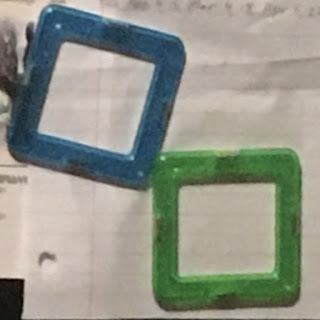It was my father who taught me the value of going for a walk.
It started. I think, my senior year of high school. Knowing my father it was something he was content to let grow rather than a campaign he had planned from the get-go, but there came a night he asked me to walk the dog with him and I agreed.
Our dog was a cockapoo, a polite way of saying he was a mutt who weighed 30 pounds when he needed a haircut but only 15 pounds afterward. Some nights we just walked Fonzi down to Colbaugh Avenue, sometimes we walked him all the way around the block, and sometimes we'd go for a walk that seemed reach the upper limits of infinity.
Those walks became one of the most sacred rituals we ever performed. I'd only recently returned from living for a year in New Zealand as an exchange student, and now I was getting ready to go away to college for the next four years. I was the third of four sons, and I think my father realized time was not on his side, so he wanted to spend time with me while he could.
So we walked together in weather so cold that our breath burned on its way out of our mouths, then turned to ice and shattered on the ground. We walked on spring evenings as choirs of katydids sang in the trees above, We walked on summer evenings when the murderous heat of the day had broken and the moon whispered peace.
And while we walked, we talked with one another.
I told dad about what I hoped to study at college, and somehow he agreed that it sounded reasonable, even though I changed my mind after less than one semester and studied something else instead. We talked about books we'd read and the authors we loved, and together we fanned on the latest episodes of Star Trek.
Sometimes we talked about other things in the news that probably seemed important at the time, but mostly not. It was a time I was getting ready to set sail; and as he stood on the wharf getting ready to watch me leave, he tried to decide if he was proud of the man I was becoming, or if he should go file a formal complaint with management and disavow the whole thing.
That was more than 30 years ago.
In the years since, I've walked many miles with my children. With my foster son, I filled those miles with the affection his birth parents had never given him and taught him not only how to use his legs, but his ears and his mouth as well. We walked our dog Sandy together almost every day he was here, while I filled his ears with nonstop words in a bid to lift him out of the neglect he'd been left to languish in.
I've walked all over this city with my girls. Together we've trekked our way to school, to softball and to soccer; we've stomped to friends' houses, to the library, to the parks and to summer camp. On foot we've hunted Pokemon wherever they hide, we've marched in parades, and we've even crossed the river to lose ourselves in the woods.
And as we've walked the upper limits of infinity, I've filled their ears with stories I knew, stories I made up, and stories that will never be told again. I've poured myself into them with every step I took as they poured themselves into me; and always I've prayed that it will be enough.
The girls, I think, have found the value of a good walk. The second is getting ready in a few short weeks to begin the journey her sister started a few years ago and that I once took over half a lifetime past. Her feet itch and her eyes are set on college in California.
It's a long walk, but as I watch her lacing up her shoes, I can't help but think how proud I am of the young woman she has become and is becoming.
And I can't wait for when her path leads her back home, so I can hear her stories from the road and all the wonderful things she's seen.










 The view from my window is as bleak as it gets.
The view from my window is as bleak as it gets.  We all know what they are. They're formal, binding agreements between two people, without all the boring language that lawyers love to attach to lesser contracts about the party of the first part, and the party of the second, hereafter, heretofore, ex post facto, e pluribus unum, it's all there in black and white, you stole fizzy lifting drink, I said good day sir.
We all know what they are. They're formal, binding agreements between two people, without all the boring language that lawyers love to attach to lesser contracts about the party of the first part, and the party of the second, hereafter, heretofore, ex post facto, e pluribus unum, it's all there in black and white, you stole fizzy lifting drink, I said good day sir.